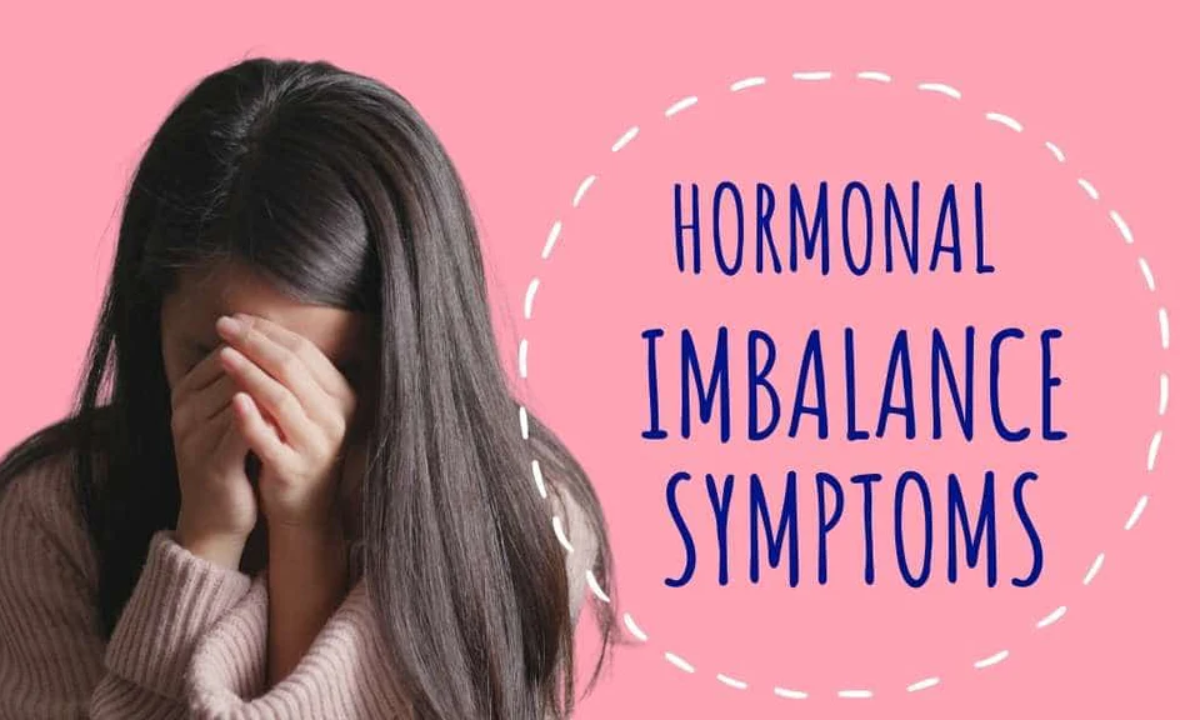Hormones play a vital role in regulating nearly every function in a woman’s body, from metabolism and reproductive health to mood and sleep patterns. When these chemical messengers become imbalanced, even slightly, the effects can show up in ways that may seem unrelated. Identifying the early signs of hormone imbalance is crucial because it allows women to take timely steps toward diagnosis, lifestyle adjustments, or medical treatment before the condition worsens. Below are ten early signs of hormone imbalance in women that should not be ignored.
1. Irregular Periods
One of the most common and noticeable signs of hormone imbalance is irregular menstrual cycles. A normal cycle typically ranges from 21 to 35 days. If periods are consistently delayed, missed, unusually heavy, or extremely painful, it may point to an imbalance in estrogen, progesterone, or other reproductive hormones. Conditions like polycystic ovary syndrome (PCOS), thyroid issues, or perimenopause can often be the underlying cause.
2. Unexplained Weight Changes
Hormones directly influence metabolism and fat distribution in the body. Fluctuations in estrogen, insulin, thyroid hormones, or cortisol may lead to sudden weight gain or difficulty losing weight despite healthy eating and exercise. On the other hand, hyperthyroidism can cause unexpected weight loss. If weight changes occur without a clear reason, it may be worth evaluating hormone levels.
3. Persistent Fatigue
Feeling tired after a long day is normal, but constant exhaustion that doesn’t improve with rest can indicate hormonal disruption. Low thyroid hormone (hypothyroidism), adrenal insufficiency, or imbalances in cortisol may leave women feeling drained. Additionally, disrupted sleep patterns caused by low progesterone or fluctuating estrogen levels can contribute to fatigue.
4. Mood Swings and Anxiety
Emotional health is closely linked to hormones. Estrogen and progesterone influence neurotransmitters like serotonin and dopamine, which affect mood. Imbalances may result in irritability, mood swings, anxiety, or even depression. Women experiencing perimenopause, postpartum changes, or PMS often notice these emotional fluctuations more intensely due to shifting hormone levels.
5. Sleep Disturbances
Hormonal imbalances can directly affect sleep quality. Progesterone has a calming effect on the brain, and when levels are low, women may struggle with insomnia or restless sleep. Similarly, fluctuations in cortisol, the stress hormone, can make it difficult to fall or stay asleep. Chronic sleep issues often signal underlying hormonal problems.
6. Skin Issues: Acne and Dryness
Adult acne, especially around the chin and jawline, can indicate elevated androgens or imbalances in estrogen and progesterone. On the other hand, low estrogen levels may reduce collagen and natural oil production, leading to dryness, sensitivity, or premature wrinkles. Persistent skin issues that don’t respond to regular skincare routines should be evaluated from a hormonal perspective.
7. Hair Loss or Excess Hair Growth
Hormonal imbalances can affect hair health in two major ways. Elevated androgens, as seen in PCOS, may cause excess facial or body hair (hirsutism). Conversely, low estrogen or thyroid hormone imbalances can lead to thinning hair or noticeable hair loss. Since hair follicles are sensitive to hormonal changes, these symptoms often appear early.
8. Digestive Problems
Bloating, constipation, or diarrhea can sometimes be linked to hormone fluctuations. Estrogen and progesterone affect how food moves through the digestive tract, while stress-related cortisol imbalances can disrupt gut function. Women who experience frequent digestive discomfort alongside other symptoms may actually be dealing with hormone-related issues.
9. Low Libido
A decline in sexual desire is another early sign of hormone imbalance. Reduced estrogen and testosterone levels, especially during perimenopause or after childbirth, can lower libido. Vaginal dryness and discomfort during intimacy, often due to low estrogen, may also contribute to reduced sexual interest and satisfaction.
10. Memory and Concentration Issues
Cognitive health is influenced by hormones, particularly estrogen, which plays a role in brain function and memory. Women experiencing hormonal fluctuations may notice “brain fog,” trouble concentrating, or forgetfulness. These symptoms often occur during menopause but can also be triggered earlier by thyroid or adrenal imbalances.
Why Early Detection Matters
Hormonal imbalances may seem like minor inconveniences at first, but if left unaddressed, they can lead to long-term complications. These include fertility problems, osteoporosis, metabolic disorders, cardiovascular disease, and chronic mental health challenges. Early detection allows women to work with healthcare providers to determine the root cause and create a tailored plan, which might include lifestyle adjustments, stress management, or medical treatment.
Steps to Take if You Notice Symptoms
If you recognize several of these early signs, it’s important not to dismiss them as just “normal changes.” Schedule a consultation with a healthcare professional, who may recommend blood tests to evaluate hormone levels. In the meantime, maintaining a balanced diet, regular exercise, good sleep hygiene, and stress-reduction practices can help support hormone health.
Schedule a Progesterone Test at Nayab Labs
Conclusion
Hormones are central to women’s health, and even subtle imbalances can disrupt daily life in multiple ways. By paying attention to early warning signs like irregular periods, persistent fatigue, mood swings, or changes in skin and hair, women can take proactive steps to restore balance. Understanding these signals is the first step toward better health, improved quality of life, and long-term well-being.






